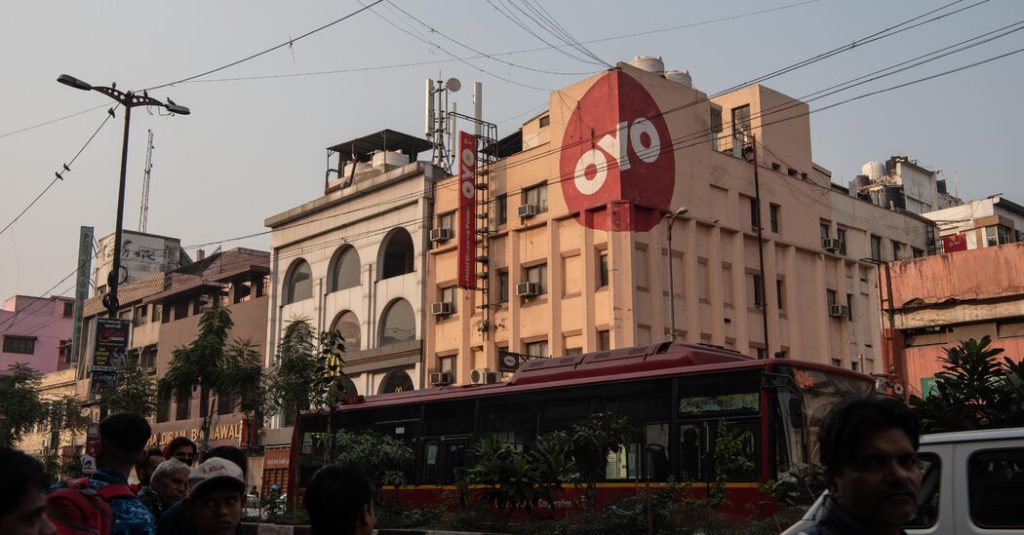Oyo, a prominent hotel booking platform in India, has recently shifted its stance on providing rooms for unmarried couples, igniting a debate on the evolving societal norms around premarital relationships in the country. Initially, Oyo gained popularity amongst young couples seeking privacy in a society where personal space is often limited, effectively becoming a haven for those seeking intimate moments away from the prying eyes of family, neighbors, and societal judgment. This reputation was built on Oyo’s discreet service and budget-friendly options, providing an alternative to furtive encounters in public spaces. However, the company’s recent policy change permitting partner hotels in Meerut, a city northeast of New Delhi, to refuse rooms to unmarried couples unless they furnish proof of marriage represents a significant departure from this image. Oyo attributed the decision to feedback from civil society groups and the need to align with “local social sensibilities,” but the move sparked a backlash, especially among younger generations accustomed to more liberal views on relationships.
The controversy highlights the complex interplay between traditional values and modernizing ideals within Indian society. Premarital sex remains largely taboo, often viewed as a Western influence contradicting traditional Indian culture. Marriages are often arranged by families, and the concept of premarital intimacy is often associated with dishonor, particularly within conservative circles. This stigma, rooted in the protection of family reputation, persists despite studies indicating increasing prevalence of premarital relationships among younger generations. Socioeconomic factors play a significant role in shaping attitudes towards premarital sex, with higher-income individuals generally expressing more liberal views, potentially due to greater exposure to Western culture, increased access to birth control, and wider social interactions. Nevertheless, a growing number of young Indians, regardless of caste, class, or religion, are adopting more liberal perspectives on dating and relationships, challenging traditional norms governing arranged marriages based on these social constructs.
This evolving social landscape is further reflected in the growing popularity of dating apps like Tinder and the increasing acceptance of hookup culture. A 2022 study affirmed this shift, finding that a significant percentage of young adults in major Indian cities engaged in hookups, suggesting a potential transformation in societal norms surrounding sexual behavior. This change is not without its tensions. The experience of a Bengaluru-based counselor, Neha, exemplifies the judgment unmarried couples face when seeking accommodation. Neha, who frequently used Oyo with her then-boyfriend, recounted the scrutiny they encountered from hotel owners, including those not associated with Oyo, who often questioned their marital status. Despite this, Oyo became integral to their relationship, even featuring in their wedding invitation, a testament to the platform’s role in facilitating their romance.
The scarcity of private spaces in India for intimate encounters has created a market for services like Oyo. Public displays of affection are generally frowned upon, leading couples to seek refuge in places like empty movie theaters, abandoned monuments, or even bathroom stalls. This social constraint is further highlighted in popular culture, from the depiction of a couple seeking privacy in a deserted forest in the movie “All We Imagine as Light” to humorous advertisements by condom brand Manforce showcasing couples finding intimacy in public spaces. Oyo, founded in 2013 and backed by major investment firms, capitalized on this need, offering affordable rooms with a no-questions-asked policy. This approach resonated with small hotel owners who benefitted from Oyo’s platform and branding, and also with young couples seeking discreet accommodation. The prevalence of online searches inquiring about using Oyo with a girlfriend underscores the platform’s association with this demographic.
Oyo’s initial business model catered to this demand for discretion, even offering search filters like “relationship mode.” However, the company is now strategically broadening its target audience to include families. This shift is evident in a recent advertisement depicting a couple initially misunderstood by the woman’s father when mentioning an Oyo booking, with the confusion resolved when the entire family is shown checking into the hotel. This marketing strategy suggests a move towards promoting Oyo as a family-friendly option, potentially distancing itself from its earlier image as a facilitator of premarital intimacy. This rebranding, coupled with the policy change in Meerut, signals Oyo’s attempt to navigate the complexities of evolving social norms and market demands.
Oyo’s changing stance raises questions about the company’s responsibility in balancing its business interests with the broader societal implications of its policies. The decision to allow hotels to deny rooms to unmarried couples, while framed as respecting local sensibilities, could be interpreted as reinforcing existing social stigmas and potentially contributing to the discrimination faced by young couples. This move stands in contrast to Oyo’s earlier image as a champion of privacy and accessibility. While the policy is currently limited to Meerut, its potential expansion to other areas could further restrict options for unmarried couples seeking private spaces and reinforce the prevailing societal discomfort around premarital relationships. Oyo’s evolving position in this debate reflects the ongoing tension between tradition and modernity in India, with the company now seemingly prioritizing a more conservative approach to navigate a sensitive social landscape.











